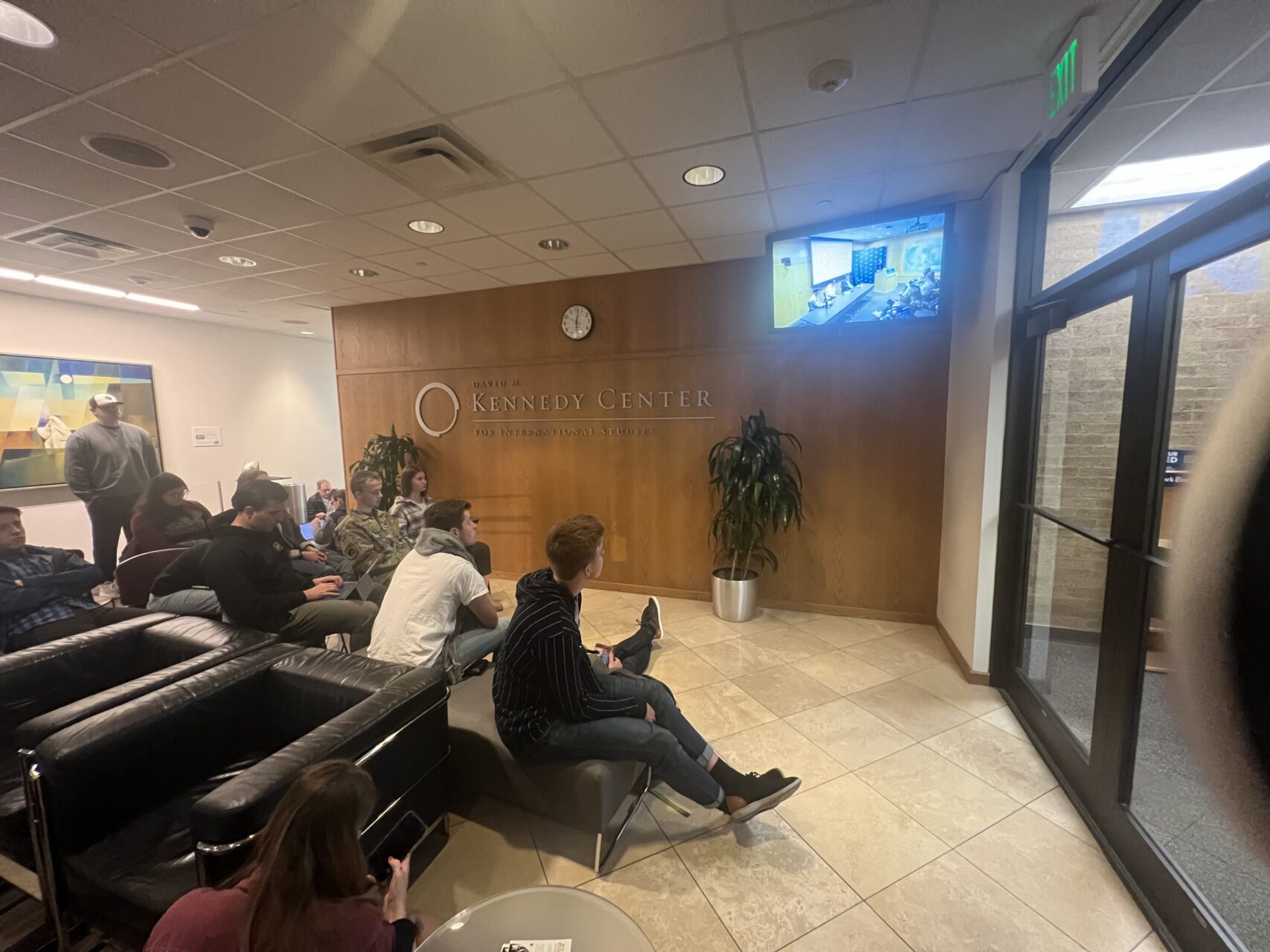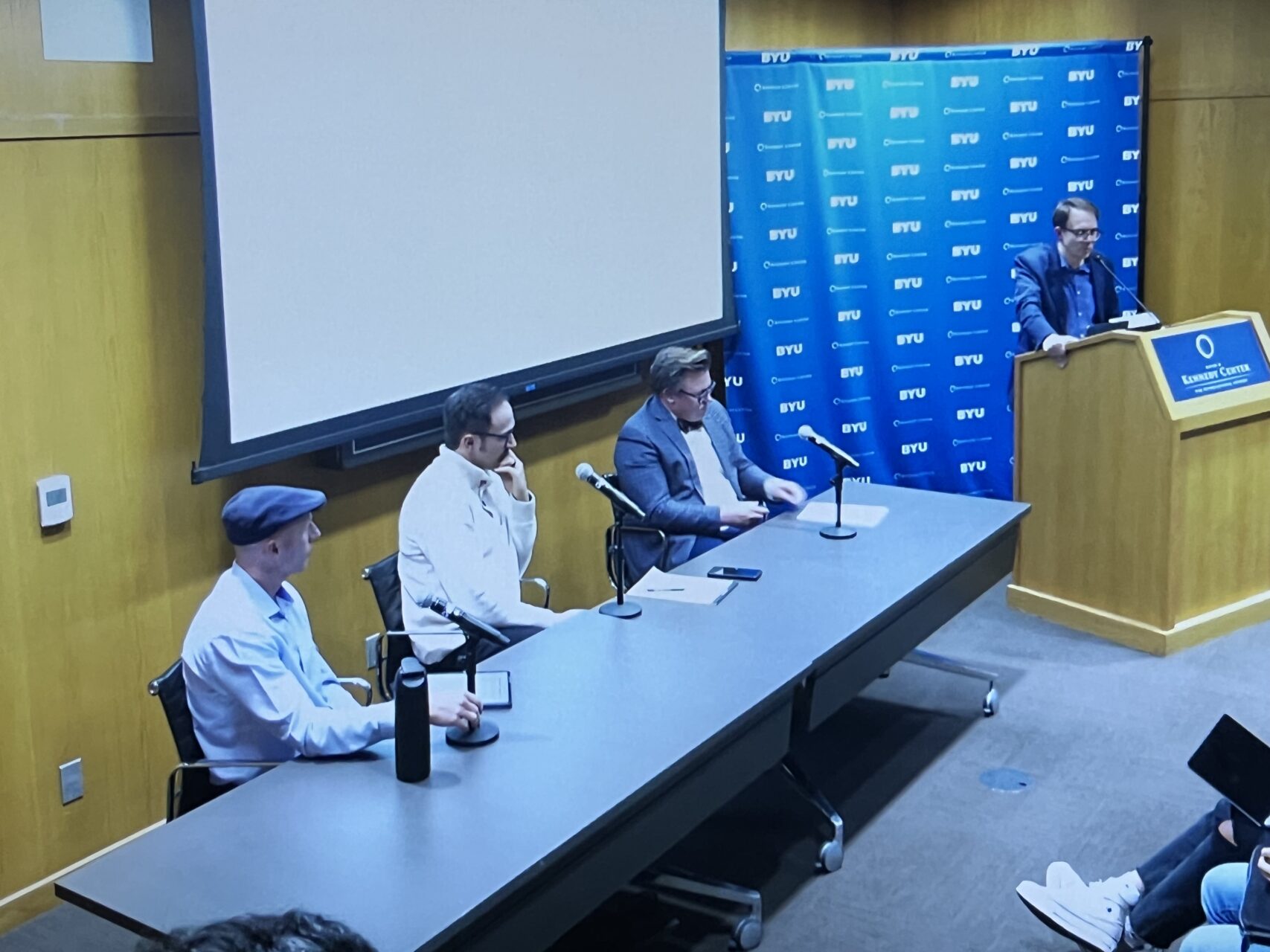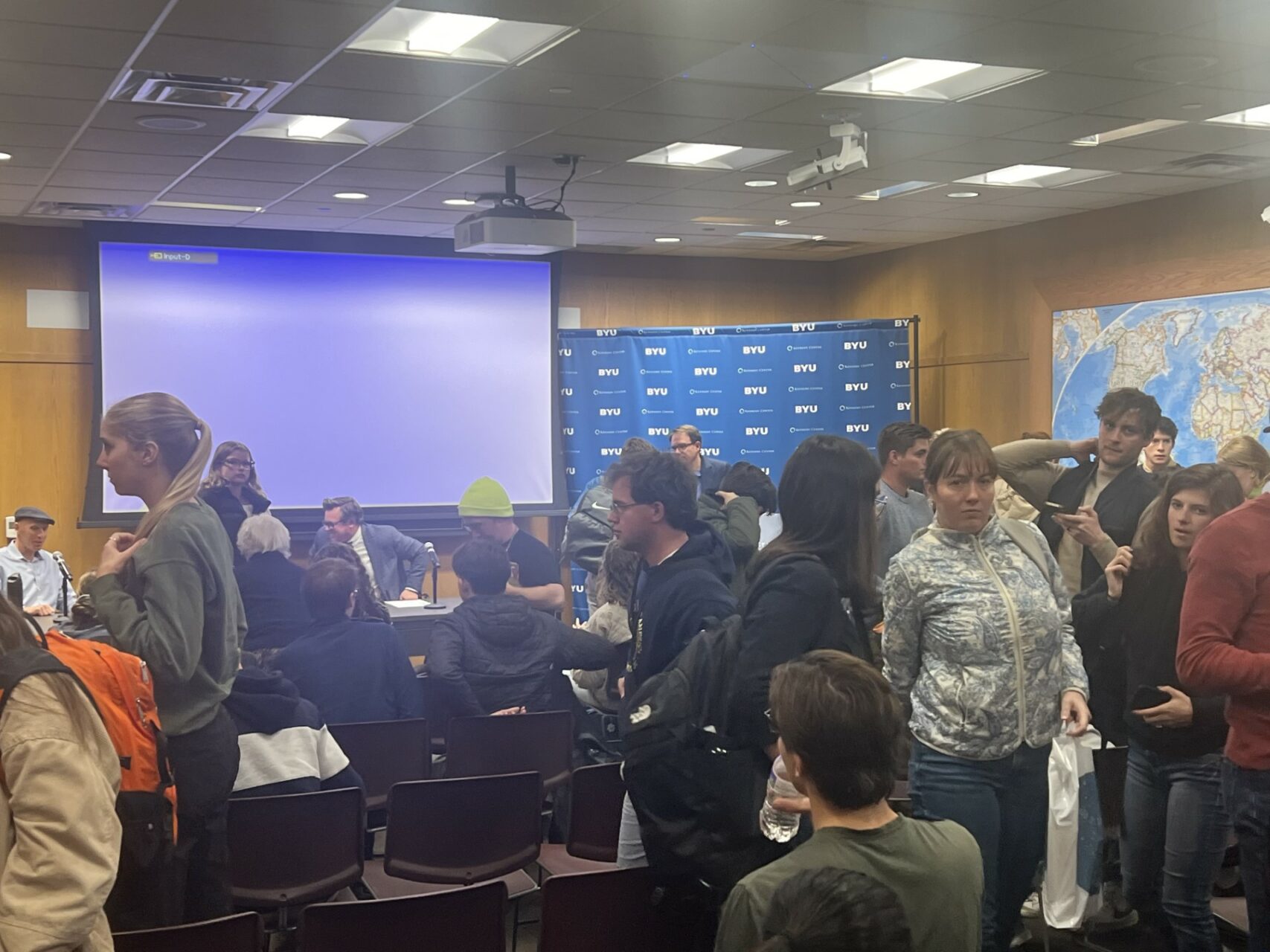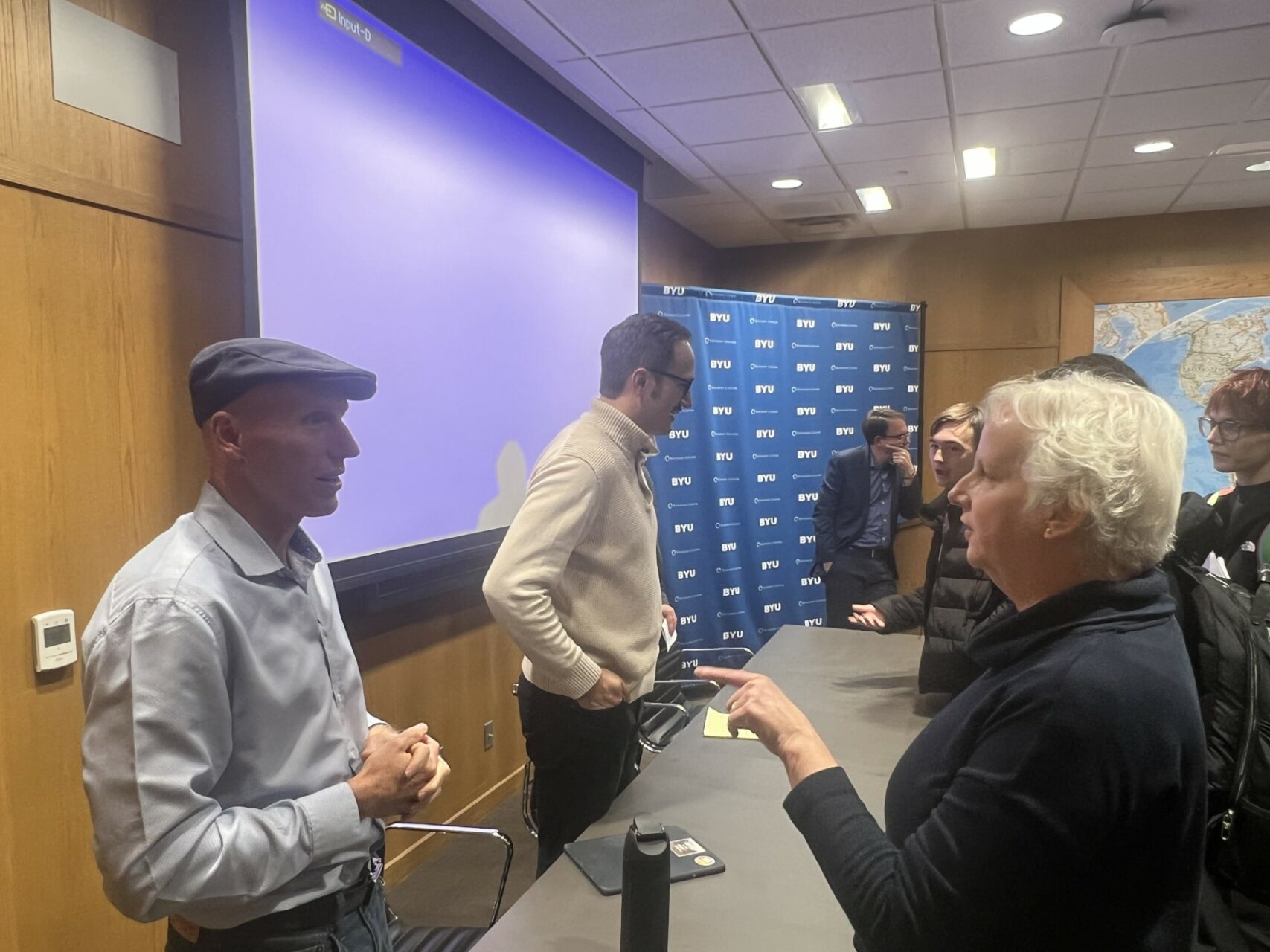
BYU professors addressed a crowded conference room the evening of Monday, Oct. 30 to shed light on the current conflict taking place in Gaza and invited students to educate themselves and work toward becoming peacemakers.
On Oct. 7, the pro-Palestinian-Islamist group Hamas launched an offensive attack against Israeli citizens and the Israeli government. In response, Israeli Prime Minister Benjamin Netanyahu formally declared war on Hamas. As of Oct. 30, the Gaza Ministry of Health had reported 8,309 Palestinian fatalities and an estimated 1,400 Israeli fatalities as a result of the conflict.
Monday’s panel allowed BYU religion professor Andrew Reed and BYU political science professors David Romney and Joshua Gubler to provide analysis, insight and possible solutions to the recent events in Israel-Palestine. The panelists also sought to offer ideas as to what members of the BYU community can do to help those impacted by the conflict. The discussion was moderated by political science professor Quinn Mecham.
Mecham began the panel by sharing the BYU community’s concerns over the recent events taking place in the Middle East. As the war enters into its fourth week, Mecham shared the BYU community’s important role in leading the effort to better understand this conflict.
“I care a great deal about the human consequences of this conflict,” Mecham said. “It’s emotionally challenging, and I’m heartbroken for the individuals and families. But we are uniquely positioned at BYU to provide some spiritual leadership.”

Associate professor of religion Andrew Reed was the first person to speak at the event. He also serves as the chair of the Council of Interfaith Engagement. Reed began his remarks by telling those in attendance about the importance of keeping this conflict in our thoughts as there are real human lives involved.
“As citizens of the globe, we have a responsibility to think about these things. I’m grateful that BYU has created a space where we can do that collectively,” Reed said.
Reed also discussed the important role BYU has in helping students understand the war from both sides of the conflict.
“We’re not just trying to educate our minds, but are trying to think holistically about the student as a whole,” Reed said.
Reed then provided an in-depth analysis of what this conflict means in terms of Jewish identity and Jewish history by providing a history of Israel, its relationship with the Holocaust and the relationships between Israeli citizens and their government.
He also reminded student of what’s at stake in the conflict in the Middle East, leaving a powerful reminder.
“There is more at stake here than choosing sides,” Reed said.

David Romney, an assistant political science professor at BYU who has conducted research on Israel and Palestine, continued to shed light on the potential implication of what the conflict means in terms of Israeli domestic politics.
“There are a lot of Israelis concerned about their physical security but are optimistic about the future Israel. At the same time there is very low trust in their government and prime minister,” Romney said.
According to Romney, Israel has had five elections over the last four and half years because of extreme divisions within Israeli society, reflecting both a changing religious demographic and support of Benjamin Netanyahu. He highlighted the popularity of other Israeli politicians, intelligence failures and changes in public support of the war effort in Gaza.
“Israel has been divided. That division has come over Netanyahu and other fractures in their society,” Romney said.
Joshua Gubler, an associate political science professor and the coordinator of the BYU Middle East Studies program, provided human insight into what is happening through the war. Gubler clarified a popular misconception that the conflict is a religious one, and said he believes the issue is rather a point of nationalist conflict.
“This is a nationalist conflict. It’s hard to put the beginnings of this conflict before the late 1800s. This is not some sort of eternal religious conflict,” Gubler said.
Gubler concluded his remarks by inviting students and faculty to be peacemakers.
“I’ve heard from members of both communities who are afraid to go out. As disciples of Christ, we have to be a part of building communities where that is not expectable. Being a peacemaker means gathering to Christ and his love,” Gubler said.

For students like J.T. Gardner, an international relations major, the message was a powerful reminder of understanding the situation happening in the Middle East as well as the importance of listening to others.
“I was touched, and it gave me an appreciation for the education I’ve received from BYU with its lens on educating on how we are invited to be disciples of Christ and to listen,” Gardner said.
Ben Beckstrom, a political science major, appreciated the professors’ insights but wished there were more ways students could help.
“I would appreciate if there were more practical ways to help like blood drives, fasting, canned-food drives, but the information and the human element are things that’ve been severely missing,” Beckstrom said.
Mirabella Keogh, a public health promotion major, shared her biggest takeaway of the evening was the importance of understanding there are a lot of civilians involved on both sides in this brutal war.
“Humans are on both sides of the equation, and we can see people as numbers very quickly. The best thing we can do is to recognize and celebrate human dignity,” Keogh said.
As the conflict continues to rage throughout Gaza, the U.S. is continuing to back Israel and is making a larger presence in the region, according to the U.S. Department of Defense.




